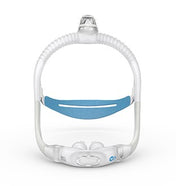HOW CAN I IMRPOVE MY SLEEP?
In today's world, we are constantly bombarded with reasons NOT to sleep. Work, family, children's activities, television, email, social lives - all can present obstacles to sleep. If you feel like you are not getting adequate sleep, you should consult your Doctor, as you may have a sleep disorder that requires treatment. However, there are also things you can do TONIGHT to help improve your sleep hygiene. The tips below, practiced consistently, can help you fall asleep faster and sleep deeper. Try them this month and you may just have the best sleep you've had in a long time!
- Avoid caffeine, alcohol, and nicotine 4 hours before bedtime
Caffeine and tobacco are stimulants that can keep you awake, or increase your awakenings throughout the night. Many people believe alcohol helps to bring on sleep; however, after a few hours it acts a stimulant and can increase awakenings. This causes fragmented and lower quality sleep. Limiting these substances to at least 4 hours before bedtime will improve your sleep quality.
- Turn your bedroom into a Sleep Zone
Your brain should associate your bedroom as a place for two things: sleep and sex. Avoid bringing work or electronics such as television or laptops into the bedroom. Eliminate outside noise through the use of earplugs or white noise machines. Consider black out curtains or an eye mask to create darkness, which cues your brain that it’s bedtime. And ensure the room is comfortably cool (between 16-23 degrees Celsius). Your body temperature naturally drops during sleep, and by keeping a cooler bedroom you can promote this naturally occurring phenomenon (this is why it often feels good to dangle one leg outside of the covers!).
- Establish a pre-sleep routine
Our brains are usually racing from one thing to another throughout the day. Like a racecar or freight train, you can’t expect your brain to go from 100mph to 0mph immediately! Prepare your body for sleep by establishing a routine of relaxing activity ~1 hour prior to bed. This could include watching television, reading a book, taking a bath (the rise then fall in body temperature promotes sleepiness), or mindfulness meditation. If you find you take problems to bed with you, write down a To-Do list prior to bed to get them off your brain.
- Remove the clock from your bedside table
Staring at the clock when you can’t sleep only creates stress, making it harder to fall asleep. Turn the clock away from you or remove it from the room altogether.
- Catch some rays
Natural light helps keep your body’s natural sleep-wake cycle in order. Getting outside for a 30 minute walk during the day will help keep your body on track.
- Set a consistent wake up time
Waking up at the same time every day is the best way to set your body’s internal clock. This will help ensure you’re tired at the end of the day and ready for sleep. A recent UK study showed 60% of people have the hardest time falling asleep on Sunday night, and find it easiest to fall asleep on Thursday. Why? Likely due to “social jetlag”, whereby people go to bed later and wake up later on the weekend – effectively shifting their biological clock as if they’d traversed time zones. By Thursday their internal clock is back on track, only to be thrown off again on Friday! Stick to the same schedule as much as possible, even on weekends.
- Avoid napping during the day
Napping, as good as it feels at the time, will decrease sleep drive and make it more difficult to fall asleep at night. Avoid napping as much as possible, especially later in the day.
- Exercise early
Exercise helps promote deep, restful sleep if done at least 2-3 hours prior to bedtime. Exercising intensely too close to bedtime will stimulate the mind and body and release a stress hormone called cortisol, which can delay sleep.
- Lighten up on evening meals
Eating a heavy meal right before bed is likely to keep you awake and uncomfortable. Finish dinner several hours before bed, and try to avoid foods that can cause you indigestion.
- Avoid late night screen time
Your phone and laptop emit blue light, which has been shown to stimulate the brain and disrupt your internal clock. Avoid reading on your phone or laptop in the hour before bedtime. If you must be on your phone, take advantage of your phone’s night mode (on iPhone, go to Settings>Display & Brightness>Nightshift) to reduce the amount of bluelight after 9 or 10pm.
Sleep is critical for our lives. Taking steps to give yourself the best chance of having a good night’s rest will go a long way to improving both your mental and physical health.











